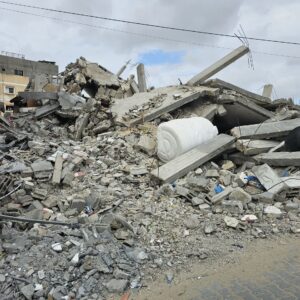For the past six months, George Antone, Caritas Jerusalem Administrative Manager in Gaza, along with his wife Nisreen and their three children, has called the compound of the only Catholic church in Gaza home. Their journey is one of resilience amongst the backdrop of fear and desperation. As the conflict escalated in October 2023, Antone ...

Address: Rue Cap. Briard Boulevard de la République, BP 29, Republic of Djibouti
Telephone: +253 213 539 81Fax: +253 213 548 31
Email: [email protected]
/ [email protected] / [email protected]
Facebook: Djibouti Caritas
Caritas Djibouti was founded by Msgr Bernardin Hoffman, Bishop of Djibouti, on 1 January 1978. For more than three decades it has been helping the country’s inhabitants, of whom half live in the capital and have to face up to the problems of an extremely poor African country.
Caritas Djibouti contributes to emergency humanitarian aid, so as to combat food shortages and the dire consequences of conflicts and natural disasters striking neighbouring countries such as Somalia and Ethiopia.
The organization is also confronted with the reality of extreme climate change affecting the country. Recurrent drought in the region has made life particularly difficult for stock breeders who sometimes lose up to 70 % of their livestock. On the environmental level, Caritas Djibouti is leading programs fighting against drought.
In collaboration with the Christian community, who is mainly of foreign origin, Caritas Djibouti is involved in healthcare and emergency humanitarian aid projects, as well as the promotion of education, support to street children and advocacy actions for challenge related to the status and treatment of women.
It supports the work and projects of international agencies and non-governmental organizations and joins forces with several ministries and local associations.
Updates from Djibouti
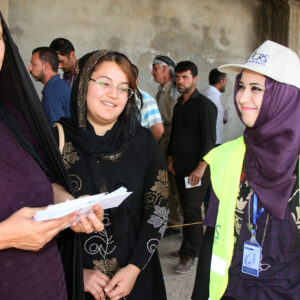
I have been working in Caritas Iraq since mid-2015 as a presenter of psychosocial support lectures within the women’s empowerment programmes which were held at Caritas Iraq – Duhok office. After the approval of a new psychosocial support programme in 2017, we received training and I became responsible for the implementation of the programme in ...
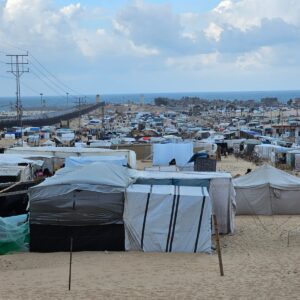
It has been almost four months since the latest round of conflict in the Holy Land began on 7 October 2023, resulting in unprecedented levels of destruction and suffering. As a result, the humanitarian crisis within the region continues to deepen. Caritas Internationalis stands at the forefront of the humanitarian response, reiterating its call for ...
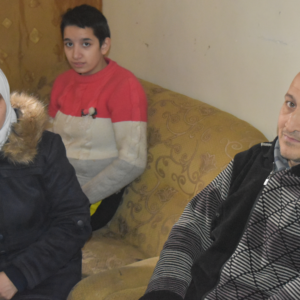
Yasmine Halalish lives in Aleppo with her husband, Fathi Moustafa, as the stepmother of three children: Raneem, who needs special health care, Tasneem and Mouhammad Moustafa. Their birth mother died. Please tell me about the time after the earthquake. Did you receive any aid? «We did receive aid from Caritas Syria: canned food, hygiene kits ...
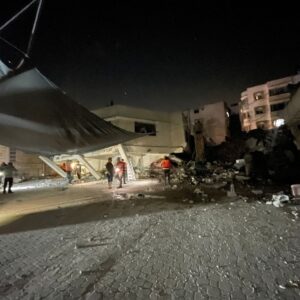
Caritas Internationalis joins the Global Day of Action organised today, 18 December, in support of #CeasefireNow, the open call for an immediate ceasefire in the Gaza Strip and Israel to prevent a humanitarian catastrophe and further loss of innocent lives. Caritas Internationalis and several of the Confederation’s 162 national Caritas have joined the initiative, including Caritas MONA (Middle East and North Africa) and ...
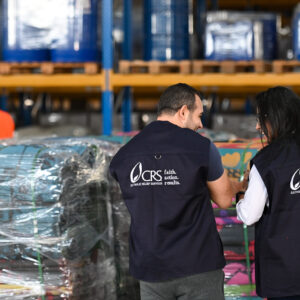
For the seven days of pause in hostilities since November 24th, 2023, our dedicated Caritas Jerusalem team, led by our medical consultant Dr Jihad Al Hisi, provided primary health care to the most vulnerable communities in southern Gaza. Across the Gaza Strip, the Israeli bombing has destroyed more than 46,000 homes and otherwise damaged over ...
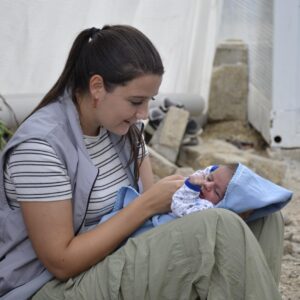
We could finally afford to live in the house of our dreams. It was outside the centre of Homs, the family home, big and spacious. After years of hard work as a teacher, my husband had saved enough money to renovate it. I was happy, finally our children would have enough space to grow up happy. ...
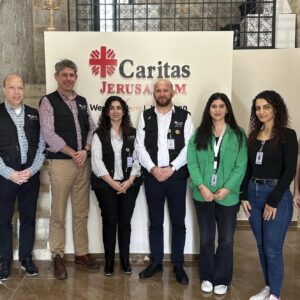
Following his recent visit to the Holy Land to support local Caritas Jerusalem staff and volunteers, Alistair Dutton, Secretary General of Caritas Internationalis said, “It was intense and emotional. Caritas staff described their pain, frustration and powerlessness that they are not able to reach their colleagues or help the communities in Gaza. They have set ...
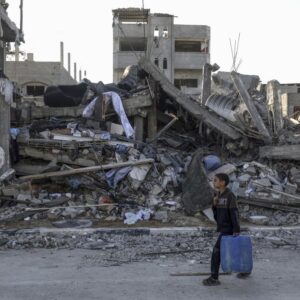
A month after Hamas’ attack on Israel, the latter’s reaction, and the war that has ensued since, Caritas Internationalis urges both parties to cease fire, protect people, guarantee humanitarian access, abide by international law, and release all the hostages. “Through our common humanity, all human life is equally sacred, and none can be written off ...
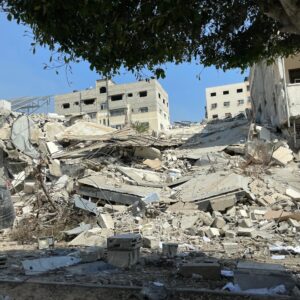
Since the escalation of violence on October 7, 2023, Gaza has lost at least 3,800 people, with 12,900 more injured. Numerous residents have been forced to seek refuge in hospitals, UNRWA facilities, and churches. The shortage of electricity, water, and food supplies, especially for hospitals, has exacerbated the humanitarian crisis. “Do you know what I ...

